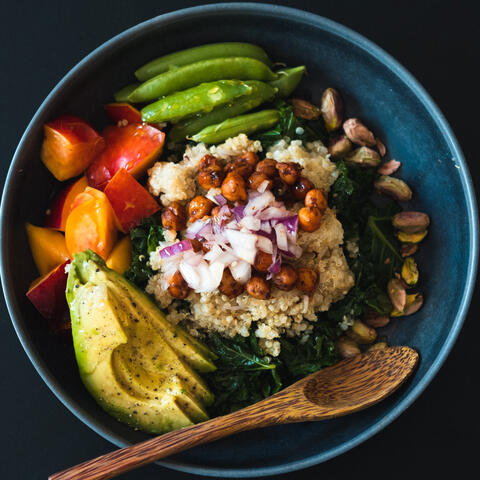
Stop Food Waste
Despite what you may have heard, the majority of waste associated with food occurs in its production, rather than non-consumption.By choosing wisely we can vastly reduce waste associated with food production.
The Problem
Growing plants to feed animals and then eating the animals is a highly inefficient way of producing food, especially when we can get all the nutrition we need by eating plants directly.Animal agriculture uses over 80% of farmland, but produces only 18% of calories and 37% of protein.Even when animal-based food is not “wasted” in the traditional sense, i.e. not thrown away, it creates more environmental issues such pollution, GHGs, soil degradation, and uses higher levels of resources such as land, water, fossil fuels than plant-based alternatives.So why base your diet on something so resource intensive when there are perfectly viable alternatives that don’t have such a negative impact. Why choose the least efficient option which is inherently more wasteful? We would be better off not producing such wasteful products altogether.
The Solution
By choosing to eat plant-based we can cut out the "middle animal" and avoid wasting the input resources that animal based foods require whilst still meeting our nutritional needs.
Eating plant based offers the following advantages:
Reduction in green house gas emissions by 70%
Reduced soil degradation safeguarding this precious resource
Less land required for food production, freeing land for rewilding back to nature protecting habitats and preventing species decline
Reduced water use
Less reliance on fossil fuels
Improving self sufficiency
Estimated saving of £50billion in healthcare and societal costs in the UK (between $1 and $30trillion world-wide)
Contact





